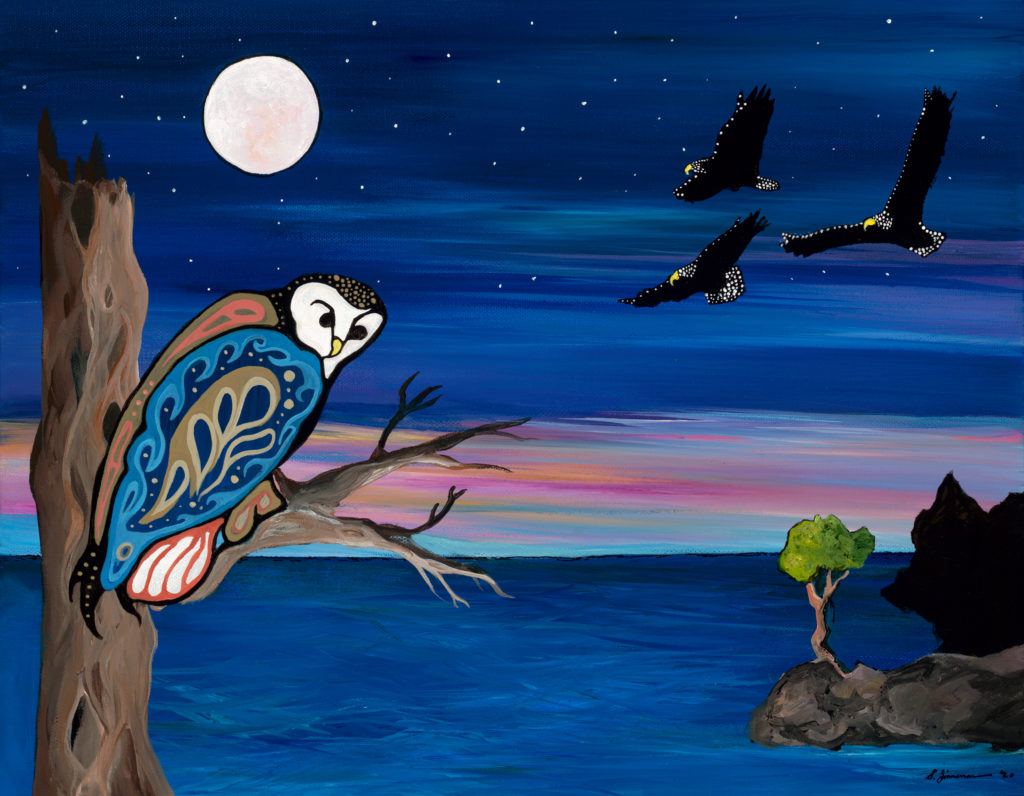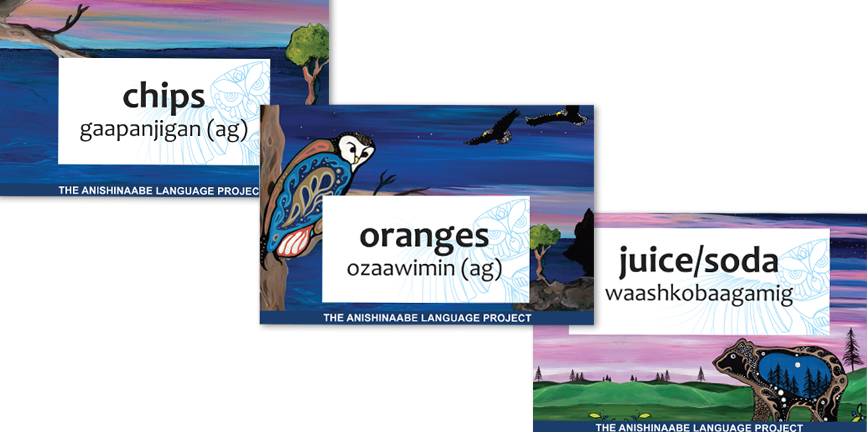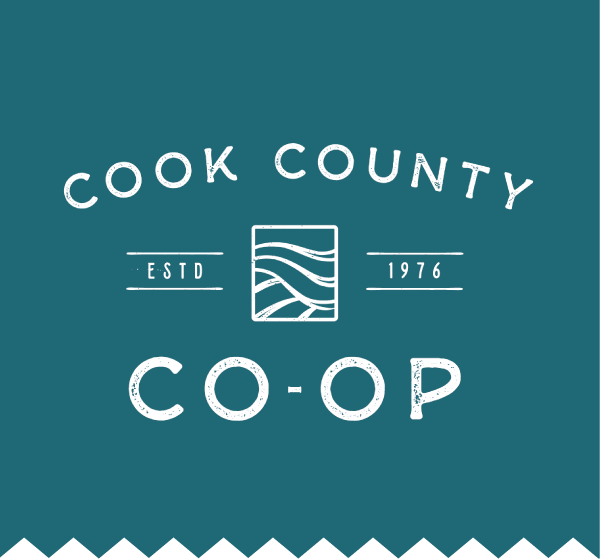
Biindigen, come in!
Introduced in February of 2021.
The Cook County Co-op is just a few steps away from Lake Superior, Gichigami, on the East Bay of Grand Marais. The Anishinaabe name for Grand Marais is Kitchibitobig, which means, “a place of duplicate water or double bays.” The North Shore of Lake Superior is recognized as part of the traditional homelands of the Lake Superior Anishinaabe—the first people of the North Shore. This part of the Minnesota Arrowhead was ceded to the U.S. Government by the Grand Portage Band of Anishinaabe as part of the Treaty of 1854. As part of the Treaty agreement, this is where the Lake Superior Anishinaabe continue to hunt, fish and gather food within the ceded territory. Anishinaabe people have lived all around Lake Superior for centuries, including throughout what is now downtown Grand Marais. The multi-cultural knowledge of our area includes a rich history of foods, herbal medicines, and sustainable harvesting methods that have been passed along for many generations by Anishinaabe people who subsisted on seasonal, local food long before the first European settlers arrived in the mid-1600’s. These living and treasured traditions have helped sustain the people of the North Shore for a thousand years or more, and continue to provide for current and future generations of residents and visitors alike.
The Anishinaabe word for grocery store is wiisiniwin-adawewigamig, or “a store that sells food.” The Anishinaabe belief is that once you name things, you bring them into the world. For this reason, the Cook County Co-op is proud to honor the historic and cultural contributions of our Anishinaabe community members by incorporating Anishinaabe names into many item tags and in-store display items. A very literal and descriptive language, the Anishinaabe words for things are often going to be much longer than the English word, because in many cases the name for something is the description of the item. For example, the word for bread (yeast-risen) or bannock (baking-powder-risen) is bakwezhigan, or, “it rises up.” Bannock is as much a part of the North Shore tradition as donuts are. “Yeast bread baked in an oven” is gibozigan. Because bread rises up as it cooks, it is considered to be animate and part of the living world of foods. As you shop, you are welcome and encouraged to say the words out loud, as a fun way to learn more about our local history.
As a community grocery store, the Cook County Co-op embraces the multi-cultural history of our region and wants to reflect our local community in the work that we do. As part of this work, we recognize that it is only because of the long-standing cultural contributions of Anishinaabe people that the Cook County Co-op can provide grocery staples like wild rice manoomin, maple syrup zhiiwaagamizigan, fresh Herring odoonibiins and Lake Trout namegos, which are harvested in the waters off shore in very small boats, just as the Grand Portage Anishinaabeg have done for centuries.
Miigwech for visiting the Co-op today. In Anishinaabe instead of goodbye we say, gigawabamin, or “I’ll see you.”
So, until then, gigawabamininim minawa, we’ll see you again.
–Staci Lola Drouillard, Grand Portage tribal descendant and local author

If you’re interested in learning more words or more about the Anishinaabe language, Anishinaabemowin, check out The Ojibwe People’s Dictionary and Bemidji State’s Ojibwe Language Resources.
